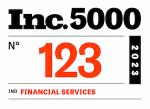
As we settle into year one of the new administration post-election, discussions surrounding economic policy—including tariffs and taxes—are returning to the forefront of the national conversation. President Donald Trump remains a central figure, with proposals and commentary on trade and tax reforms that could have far-reaching implications for both the broader economy and individuals planning for or currently living in retirement.
At Retire SMART, our role is to help retirees navigate uncertainty with practical, well-informed guidance. In this article, we aim to explore the potential implications of tariffs and taxes—past, present, and future—while remaining balanced and compliant with regulatory standards. Whether you’re already retired or preparing to transition, it’s important to understand how economic shifts might impact your financial plan.
A Refresher on Tariffs and Their Potential Impact
Tariffs are taxes imposed on imported goods, often used as a tool to protect domestic industries or negotiate trade terms. During his first term, President Trump implemented a series of tariffs—most notably on goods imported from China and other trading partners. While these moves aimed to boost American manufacturing, they also influenced consumer prices and market sentiment.
- Consumer Costs and Inflation
Tariffs typically lead to higher prices for imported goods. This can include everyday items such as appliances, electronics, and clothing, as well as manufacturing inputs that eventually impact domestic products. For retirees on fixed incomes, this increase in the cost of living can reduce purchasing power over time.
Increased prices may not be felt immediately, but if trade tensions escalate and tariffs are reimposed or expanded, it could contribute to inflationary pressure in the broader economy. Retirees who rely on predictable income streams should ensure their financial plans account for potential cost increases.
- Market Volatility and Portfolio Risk
Trade-related policy announcements often generate short-term market volatility. Equity markets tend to react swiftly to uncertainty, especially around global trade disruptions. For investors in or nearing retirement, this volatility can be particularly challenging if you’re withdrawing funds during a market downturn—also known as sequence-of-returns risk.
Maintaining a diversified portfolio and an appropriate asset allocation for your risk tolerance and time horizon remains critical.
Tax Policy and Its Role in Retirement Planning
The Tax Cuts and Jobs Act (TCJA), passed in 2017 during Trump’s first presidency, included significant changes to the federal tax code. These changes lowered marginal tax rates, nearly doubled the standard deduction, and increased estate tax exemptions. However, many of the provisions affecting individual taxpayers are set to expire at the end of 2025.
Future tax policy will depend on Congressional decisions, and while some candidates may propose extensions or new reforms, nothing is guaranteed.
- Marginal Tax Rates
The current tax brackets established under the TCJA could revert to higher pre-2018 levels unless extended by Congress. Retirees who are withdrawing from tax-deferred accounts like traditional IRAs and 401(k)s may experience increased tax liability if rates rise. For some, executing partial Roth conversions now—while rates are lower—could be a tax-efficient strategy.
Note: Tax strategies should always be discussed with a qualified tax advisor to ensure compliance and suitability.
- Estate and Gift Tax Thresholds
The TCJA also raised the federal estate and gift tax exemption to over $13 million per individual in 2025. This higher threshold could be reduced significantly if the current provisions are not renewed. Individuals with sizable estates should stay in close contact with estate planning professionals to ensure their legacy goals align with evolving laws.
- Capital Gains and Investment Income
There has been political discussion—though not legislation—regarding changes to how capital gains are taxed. Some proposals have included reducing rates, indexing gains to inflation, or altering how gains are calculated. While these ideas remain speculative, retirees planning large asset sales (like real estate or business interests) should keep an eye on developments.
Strategic Considerations for Retirees
While it’s impossible to predict future legislation or market outcomes, there are several proactive steps you can take to help insulate your retirement plan from potential economic disruptions:
- Diversify Income Sources
Having income spread across tax-deferred (e.g., traditional IRA), tax-free (e.g., Roth IRA), and taxable brokerage accounts can give you greater flexibility in managing tax exposure year to year. This also allows you to adapt to changes in tax brackets or investment returns.
- Review Withdrawal Strategies
Rather than taking fixed withdrawals regardless of market performance, consider using a dynamic withdrawal approach. For example, adjusting your distributions based on portfolio performance and market conditions can help reduce the risk of depleting your nest egg too quickly.
- Monitor Healthcare Costs
Medical expenses tend to rise faster than general inflation. If tariffs increase the cost of healthcare products or pharmaceuticals, the impact could be significant for retirees. Make sure your retirement income plan includes a realistic estimate for medical costs—including long-term care if needed.
- Stay Informed and Review Plans Regularly
Tax laws, investment markets, and consumer prices can all shift quickly, especially in an election year. Schedule regular check-ins with your financial advisor, CPA, or estate attorney to ensure your plan is current and responsive to external changes.
Final Thoughts: Building Resilience Into Your Retirement Plan
While it’s tempting to react emotionally to political headlines, the most successful retirement strategies are rooted in preparation, flexibility, and discipline. Tariffs and taxes are just two of many variables that can influence your retirement lifestyle—but they are manageable with the right guidance and a strong plan in place.
At Retire SMART, we’re committed to helping you make confident, informed decisions regardless of economic or political developments. Whether you’re already retired or just a few years away, now is a good time to revisit your strategy and consider whether you’re prepared for a changing tax and trade environment.
Disclosure: The information provided herein is for informational and educational purposes only and is not a recommendation or solicitation of any specific investment or strategy. Investment advisory services may only be offered through firms and representatives properly licensed or registered in your jurisdiction. All investing involves risk, including the potential loss of principal.
Need help preparing your retirement for future tax and policy changes?
Schedule a strategy session with one of our fiduciary advisors and gain clarity on your next steps.



